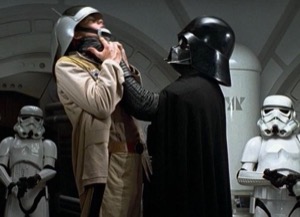
Consider this your notification.
No one knows yet why AT&T’s mobile phone customers couldn’t connect with 911 centers on Wednesday night. AT&T refuses to explain and the Federal Communications Commission doesn’t know either, saying only that its “public safety professionals are on the case”. The extent of the outage is unknown as well, with reports varying from “nationwide” to “likely thousands. Maybe millions”.
It appears that AT&T let a few public safety agencies know about the outage, but not all and probably not most. And the notifications were cryptic. One simply referred to “a service outage that is impacting the ability to deliver AT&T Mobility wireless 911 calls in your area”.
The outage came as California lawmakers are considering senate bill 566 which would require companies that provide telephone service – cable and VoIP companies as well as telcos – notify the state office of emergency services when 911 connectivity goes down in rural areas. AT&T’s Wednesday night silence in most cases, and dismissive responses in others, is Exhibit A in support of why that bill is necessary.
The outage should also cause concern for any policy maker – California legislators, the California Public Utilities Commission, the FCC, and the list goes on – that has to weigh AT&T’s pious claims of technological prowess and reliability against its headlong rush to rip out wireline networks and replace them with wireless systems that are built on the same platforms that crashed on Wednesday.
Technology fails. At times. That’s been true since the first caveman hit control-alt-delete and rebooted a frozen stone axe. What’s changed is that a shrinking number of companies have increasingly greater monopoly control over telecoms networks that are 1. paid for with taxpayer subsidies and 2. vital to the health and safety of those taxpayers.
AT&T’s deceit is not unique, but few of its peers match its arrogant disdain for customers and its cynical manipulation of the political process.
